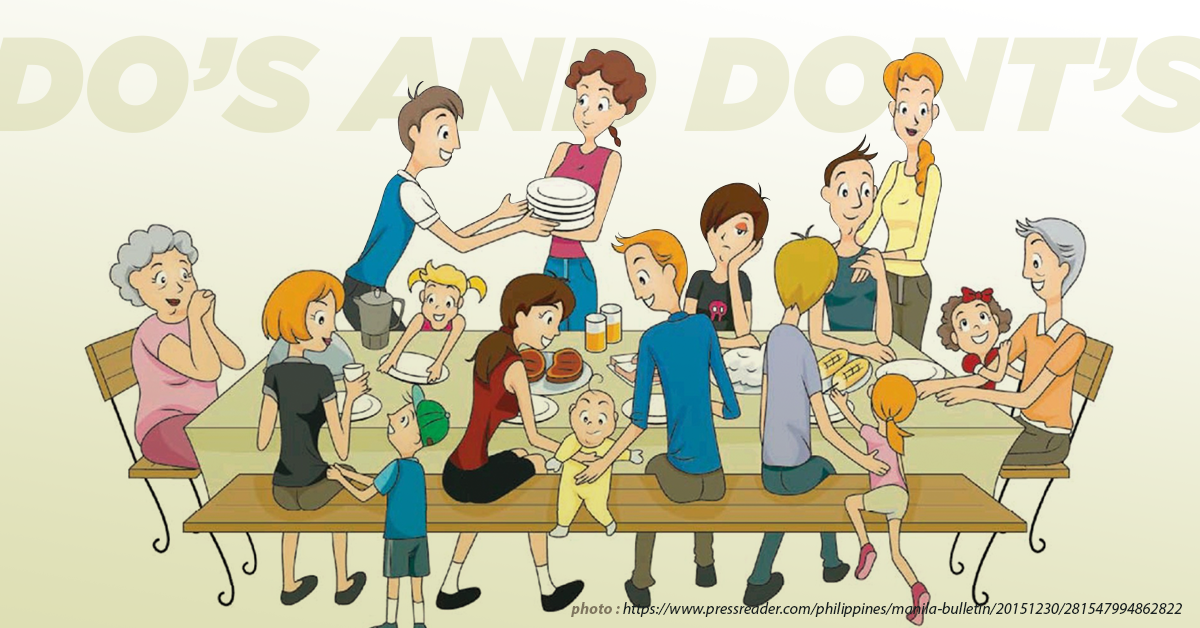December 15, 2021
by Justin John Dulogin
When we combine that sense of nostalgia with the excitement in the holiday seasons, memories of our Filipino family begin to cross and overwhelm in our head. Some of our fondest childhood memories revolved around the holidays and the family get-togethers that were accompanied with talks, catching ups, dramas and a lot more. Those places, which were filled with the smells of tasty, home-cooked Filipino dishes and the echoes of drunk uncles attempting to sing Air Supply songs on the blasting volume of Karaoke, were some of the only places where we could have the opportunity to spend time with other relatives, particularly those in a far extended family. After all, family holds a deep meaning in our values as Filipinos.
With our family, we all have a love/hate connection that we struggle to overcome. We’ve all struggled with the tension between doing and saying what we know is required of us versus what we personally believe we should do or say in a given situation. One of the reasons why some people split between seeing their family during the holidays and spending time with friends is because of toxic expectations. The fact that these gatherings were not always good or secure settings must be acknowledged at the same time. We must realize that these areas may also be a breeding ground for criticism, drama, and harmful social behaviors such as kid bragging and comparing, body-shaming, gossip, and even covert public mocking, among other things. Looking back, as much as I enjoyed attending those family reunions, I believe that the experiences I experienced at these gatherings as a child were responsible for much of the internalized trauma I have created as an adult.
The annual holiday dinner with your nosy relatives will always be upon us, and you’re waiting with anxiety for that tactless tita’s “tumaba ka” remarks or the shameless tito’s “wala ka pa bang asawa/ kasintahan?” remark. It could also be a relative that has consistently overstepped your limits in the past, interrogating you about your sexual orientation or religious beliefs without permission. Perhaps weddings, birthdays and holidays does not offer you any joy at all – and that is perfectly acceptable.
In that case, what should you do when confronted by relatives with whom you don’t necessarily agree, or even like?
Even in our forced efforts and patience to prevent these anxiety and stress that happens during an almost happy holiday celebration, we have to accept the fact that you cannot change your family. Be prepared to accept that they will drive you insane. Accept that the generation gap contributes to the way people think and accept the fact that you will never like them, and that you are under no obligation to do so.
Prepare your exit strategies. One of the helpful ways to let them know how toxic they are is by asking them questions that makes them feel how bad their jokes or comments about you like “Why would you ask that?” or “Why are you curious?” Do not forget to be honest and decline questions that makes you uncomfortable. Learn how to not react immediately and try to agree to disagree.
Get into the social media that surrounds the Filipino community, and you’ll discover a never-ending stream of jokes and regularly shared memes that revolve on the stereotyped Marites and their passion for gossip as well as their hypocrisy.
This set of talking points is instantly recognized by Filipinos all around the world, regardless of their location. The toxic phrases have taken on a cultural significance of their own, connecting profoundly with many people of the community. However, what appears to be a lighthearted remark on the surface might be seen as a coping technique for Filipinos who are locked in a loop of harmful and negative comparison mentality which our elders frequently subject us to and which we must endure. The memes, while sarcastic, actually represent the decaying culture of the Filipino family unit, which is detrimental to the mental health, personal growth, and development of the young people who are the target of them. What hurts the most is knowing that such hurtful statements come from individuals who may be the closest to us in our lives.

